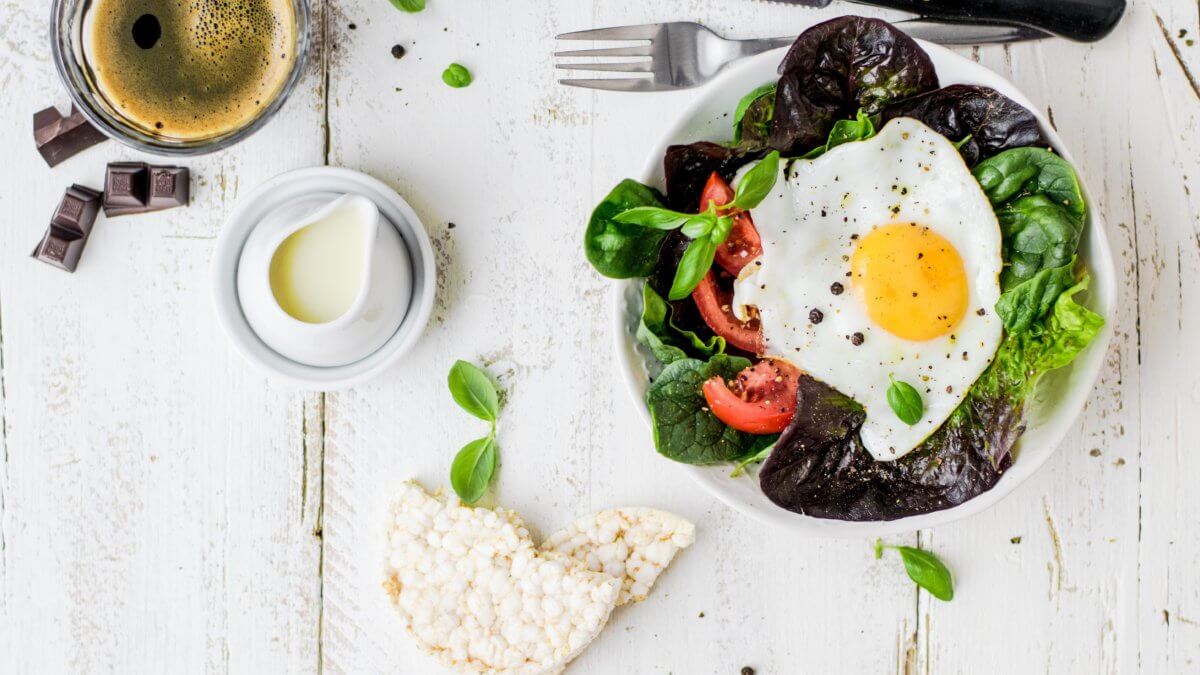
The ketogenic diet, or keto diet for short, has been trending in the wellness world lately. But, what exactly is it? In short, the keto diet is a diet that is high in fat and low in carbohydrates designed to put your body into a state of ketosis. Ketosis is a metabolic process that takes over when your body does not have enough glucose to use for energy, which we obtain from consuming carbohydrates, burning fat as fuel instead. There are many benefits of the keto diet including weight loss and provide advantages against diseases such as cancer, diabetes, heart disease, Alzheimer’s, and more.
What To Eat
The keto diet is supposed to consist of large amounts of healthy fats, a middling amount of protein, and minimal carbohydrates. It can take some practice and discipline to switch your diet to this plan. An easy way to stick to it is to meal prep for a week at a time, so that you always have something keto-friendly in the fridge.
Generally, you’ll want to shoot for under 30 grams of net carbohydrates a day. This is the total amount of carbohydrates that you’ve consumed minus the amount of fiber and nondigestible carbs, like sugar alcohol. However, your primary concern should not be reducing the calories you consume. You’ll still need to consume enough calories to provide you with the energy you need to get through the day.
There are plenty of delicious foods you can enjoy when you’re on the keto diet.
Some of the best options are:
- Fatty fish
- Unprocessed cheeses
- Eggs
- Avocados
- Cruciferous vegetables
- Full-fat yogurt
- Healthy oils such as avocado, olive, and coconut
- Berries
- Meat and poultry
- Nuts and seeds
These are all low carb options that will help you keep a balanced diet. Many of these items are also full of healthy fats, which are a cornerstone of the keto diet.
Some foods to avoid:
- Soda
- Fruit juice/ smoothies
- Sweet treats
- Grains and starches
- Potatoes, legumes, beans, root vegetables, tubers
- Low-fat or diet products
- Unhealthy fats such as vegetable oils and mayonnaise
- Alcohol
- Highly processed foods
It’s essential to stay hydrated when you’re on the keto diet, as it’s easier to get dehydrated when you aren’t eating carbs. Keep a water bottle with you throughout the day and refill it as necessary. You should also add salt to your food and take a vitamin to make sure you’re getting enough sodium and potassium. Since fats don’t typically contain enough of these electrolytes, you might find yourself feeling tired and dehydrated if you don’t take them.
Keto Diet Benefits
There are so many benefits to adopting a keto diet. The most obvious one is weight loss. If you’re looking to slim down, the keto diet combined with a regular exercise program will help you do so in most cases. Many foods in the keto diet are also high in antioxidants, so they can prevent your cells from damage and potentially reduce your chances of developing cancer. The keto diet also reduces blood sugar fluctuations, so it can help you keep your energy levels consistent throughout the day. It can even reduce or prevent acne, which is often related to blood sugar fluctuations. Of course, be sure to consult your doctor before trying the keto diet, particularly if you have any pre-existing health conditions.
